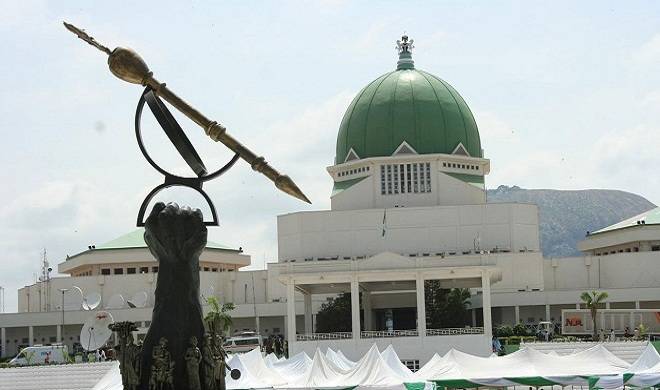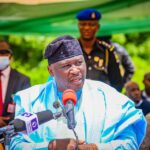By presenting the 2020 Budget estimates to the National Assembly last week Tuesday, President Muhamadu Buhari should be commended for stampeding the traditionally lethargic, federal bureaucracy to fall in line with both the provisions of the Constitution and expectations of not a few Nigerians, with respect to the country’s statutory fiscal timetable. The budget tagged ‘Budget of Sustaining Growth and Job’ earmarks a total expenditure of N10.3 trillion, with a revenue projection of N8.155 trillion, and a deficit of N2.18 trillion. By the early presentation of the budget, Buhari has taken one of the first steps towards the expected reform of the country’s fiscal regime – the restoration of the budget cycle to the January – December run.
For some time – indeed, since the return of democratic rule in 1999, the country had found it a mission impossible to run a budget cycle of January to December in any particular year, leading to the spate of massive dislocations in budget implementation and the attendant syndrome of serial disservice by government to the people. With the early presentation of the package by the President, the burden now falls on the National Assembly along with the various MDAs to facilitate its early passage, which is billed to occur before the end of December this year.
However, beyond the early presentation lie other factors which dictate that in the coming year 2020, Nigeria may continue to wallow in what an author referred to as the ‘misery-go-round’ syndrome, which has dogged the Buhari administration since its inception in 2015. The most viable prayer, therefore for the country now seems to be that the implementation of Budget 2020 should be conducted to ensure that Nigeria’s days in the ’misery-go-round’ cycle, terminate as early as possible, and not further. In the light of such a dispensation therefore, the government cannot go far away from the drawing table from which the budget package was articulated.
Meanwhile, it needs to be appreciated that the coming 2020 is also the very target year for the now back-staged, Vision 20:2020 Agenda (V20:2020), in which the country was billed to be ranked among the first 20 Frontline economies of the world. But from its trudging profile, how far the provisions of 2020 budget reconcile with the expectations of V20:2020 is a matter of conjecture. The Agenda had two key objectives. The first was to make efficient use of the country’s humongous endowments in human and material resources to achieve rapid economic growth for the country. The second was to translate the economic growth into equitable social development for all citizens. But given the prostrate stance of the country which 2020 Budget projects, the broader goals of Vision 20:2020 Agenda constitutes a mere pie in the sky, which only the wings of providence can bring down to the earth for consummation.
In specific terms, the problem areas of the 2020 budget package collectively manifest in the mismatch between some of its rather uninspiring assumptions as well as prescriptions; many of which run against the mainstream of public expectations – especially with respect to the realities of daily life for Nigerians in the country. For instance, one of its core weaknesses is that of the N10.3 trillion projected for total expenditure, as much as N2.5 trillion or 25% is earmarked for debt servicing. This figure tips the allocation for capital expenditure of N2.46 trillion or 24%, which should have ranked higher as it offers a higher growth potential for the economy than servicing debts. The government’s choice may be due to mounting pressure from its creditors, with the reckoning day for its humongous debt burden, at hand.
Nigeria’s debt portfolio stands at N25 trillion as at the end of the first quarter of 2019, and seemingly does not attract undue worry in official government circles. But such confidence is not shared by the wider society, since public debt-related operations in the country are yet to enjoy the expected level of transparency and public buy-in. Hence, the wider cross-section of the society view much of the debt management activities of the government with suspicion.
Other areas of the budget that attract public misgivings include the low ratio of GDP to capital budget. This is not to talk of the high level of taxation which the citizens will have to bear in 2020, and aspects of which have already become operational in 2019 – even before the inception of budget 2020 prescriptions. The country’s tax regime has been primed for next year with the introduction of new taxes from now such as the increase in VAT on some items.
This state of affairs reflected in reactions by various interests, including legislators in both chambers of the National Assembly, (who have started a debate on the general principles of the package), leading lights of the organised private sector, professional groups and media circles. The consensus of the various reaction points to significant misgivings over the several contents of the budget proposals. In the same context, taking the weaknesses of the budget 2020 from the perspective of the V20:2020 Agenda, presents a most disappointing narrative of a country that lost its bearing with respect to the economy a long while ago.
For if governance is actually seen as a continuum, it becomes inexcusable that after the elaboration invested in launching the vision 20:2020 Agenda, Nigeria can fail to enter the target year far from its envisaged destination. e. And with the complement of the inspiring features of budget 2020, there is hardly any dramatic upgrade of the economy in the next three months before the year 2020. A classic case of missed target by the country!
That is why the legislators in the National Assembly before whom the budget estimates now remain, need to ensure that the outcome of their enterprise reflects some telling legislative touch to make budget 2020 more acceptable to Nigerians than in its present form. Ordinarily what the President submitted was for all practical purposes and intents a mere proposal. It will take the endorsement of the legislature to confer on its statutory life.
Granted that the National Assembly had promised to pass the budget on time, such a commitment should not translate to an abdication by the institution of its sacred constitutional mandate and serve as a rubber stamp of the executive. If budget 2020 prescriptions failed to capture the lofty goals of the Vision 20:2020 Agenda, let it at least launch the country on a progressive upward trajectory out of the leanness of the times. Let the hopes of a better Nigeria, materialise with the dispensation of a better managed budget 2020.

 Join Daily Trust WhatsApp Community For Quick Access To News and Happenings Around You.
Join Daily Trust WhatsApp Community For Quick Access To News and Happenings Around You.


